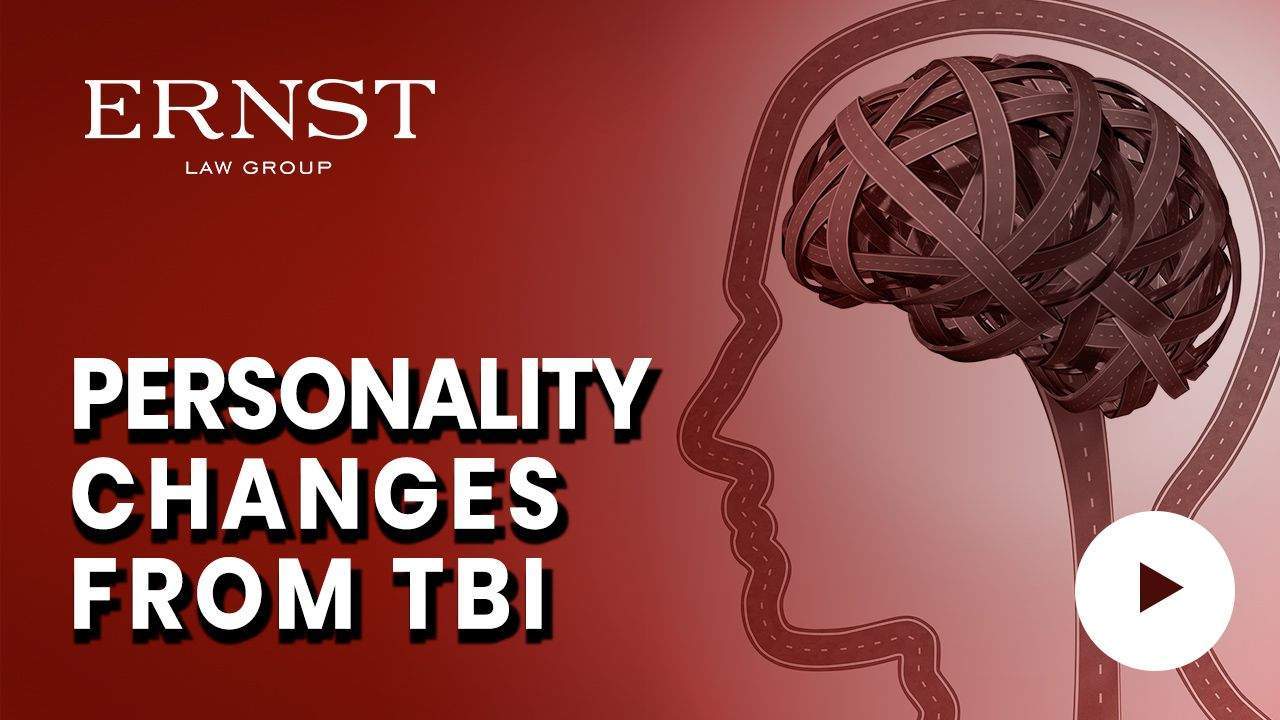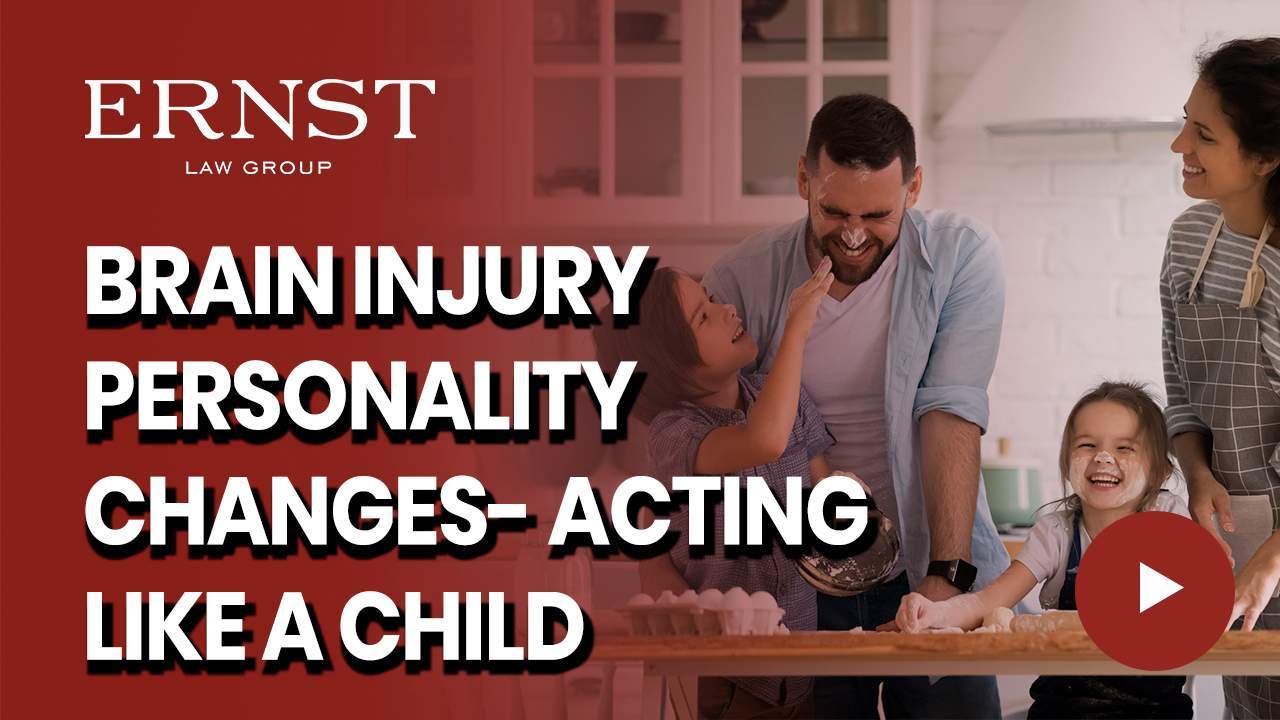Video Time Code
Home Changes For TBI Victims
Transcript:
Is your house accessible for a traumatic brain injury victim? I discussed light and sound in another video, but I wanted to discuss physical and cognitive limitations and how to make your house work for someone who has a traumatic brain injury when they’re having memory difficulties, when they’re having difficulties with their balance, or they say, “I always feel a little off kilter. I feel unsteady on my feet.” These are very common complaints we deal with clients on a regular basis, whether it’s a mild traumatic brain injury or a very serious traumatic brain injury. This is something that you see again and again, and I want to share some of the ways that we’ve helped people deal with this. So first off, is the cognitive limitations. They’ll say, “I can’t remember. My husband told me this.” Or, “My wife told me, ‘Hey, you need to remember to do this’.”
And it goes in one ear and goes out the other, and it causes a lot of problems. There’s ways you can set up your house to deal with this. First and foremost, sticky notes are used all the time by people with traumatic brain injuries. They are one of the mainstays of how to remember something. And if you are someone that hasn’t tried this yet and has a loved one or yourself that suffered a traumatic brain injury, get a big package pack of sticky notes. And what you do is anytime somebody tells you something you need to do, you need to figure out where you’re going to be and write it down on a piece of paper immediately, as they’re telling it to you. So when somebody’s saying, “Hey, I need you to do this” or “Remember to do this”, take your sticky notes out and say, “Hey, I need to write this down.” Write it down and stick the note somewhere where you’re going to see it.
The reason is, when somebody’s suffered a traumatic brain injury, their short-term memory is impaired. And what it really results in is it is an encoding problem. Our short-term memory generally lasts from one to 30 seconds, sometimes 45 seconds. And after that, if it doesn’t get put into a different component in our brain, it’s like an Etch-a-Sketch, you draw on the edge of sketch and if it doesn’t get put somewhere else, it gets shaken up. And then that part’s gone. And so sticky notes is something again and again, we see our victims use. They’ll use them in their car, they’ll use them in their house, they’ll use them at their front door. Do you remember to bring your phone wallet, keys? You put it right before they’re going to walk out. These are the things that, again and again, we see people do in their house to try and make it more accessible for them.
The next thing I wanted to talk about is in terms of not just memory, but sometimes there’s physical limitations with balance issues. To make this accessible in your house, it definitely costs more money. You need to start looking at putting bars in, and there’s a couple of places, very specifically that you need to install bars. One can be on the toilet. One of them can be near the bed, or getting in or out of the shower depending on their age. And the other is sometimes, if there’s a chair that they really like spending time in either to watch TV relax, it’s their main place. They sit sometimes if it’s like one of those bigger chairs, comfy chairs or a sofa, they can’t get up easily without feeling wobbly on their feet. And those first couple of steps are generally the most dangerous after they’ve suffered this kind of balance problem as a result of the traumatic brain injury.
And that needs to be addressed. Getting a bar, either attached to the wall, or even something as simple as bars that are bolted to the floor, or sometimes you’ll have a cane that’ll be near the chair that they use all the time. Those are things that can be worked in, it’s sometimes is a little bit of a difficult ego conversation that just needs to be had. Because you’d rather have them be safe than them saying, “I can do it. I can do it.” And then have another fall, which we know a traumatic brain injury victims are much more prone to having other falls. It’s generally a result of these balance issues. And as I’ve talked about in other videos, just because somebody has a traumatic brain injury, it doesn’t mean that their balance is completely screwed up all the time.
It just means sometimes, and further, not everybody who has a traumatic brain injury has balance problems. But it’s something that we see modified in houses enough after somebody has suffered a traumatic brain injury, that if you have a loved one and you’re trying to make your house accessible for a victim of a traumatic brain injury, you’ve got to address a couple areas where they’re going from sitting to standing, or laying to standing or, you know, using the restroom, or being in a bathtub and then getting out. Those are times that really need to have something that they can hang on to, it really minimizes the risk of harm to someone. So, those are some of the cognitive and physical limitations I wanted to discuss. And to recap, sticky notes around the house for the person, with the memory issues or cognitive impairment, it will actually cause less disagreements in marriage, children, everything.
It’s something that we tell our clients almost first and foremost, when they come to us. “Hey, you need to start using sticky notes.” It sounds dumb, but they use it and it works. You can use electronic means like a phone or something, but we found sticky notes tend to be much more in your face. You don’t have to turn on the sticky notes to see them. They’re always there, they’re always present, people are looking at them and they go, “Oh yeah, I need to remember to do this.” It’s one more reminder that even if it isn’t encoded in their memory, they’ll see it. The other, in terms of having balance issues around the house, is putting in some kind of bars, toilet, bed, shower, sometimes their favorite sofa or couch. Those things need to be looked at, and that’s more an expensive thing to do, but at the same time, if it’s preventing some type of future fall, it’s worth it. Thanks.









